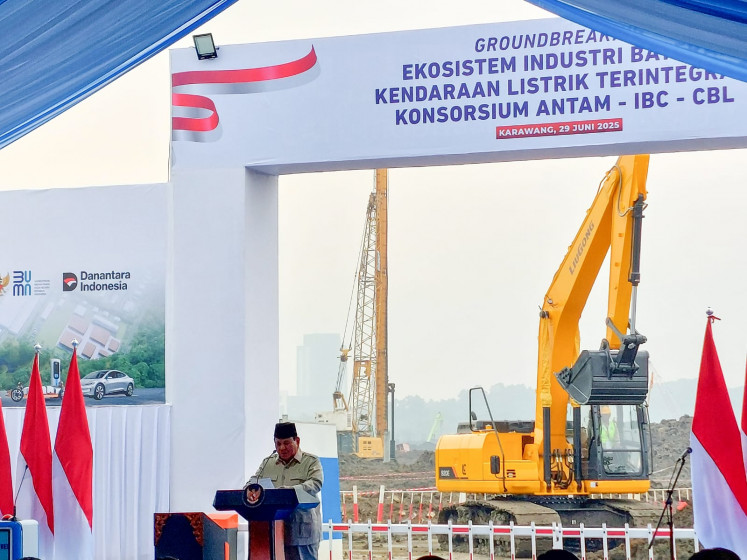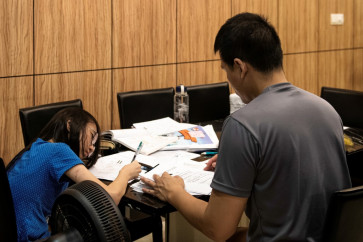Popular Reads
Top Results
Can't find what you're looking for?
View all search resultsPopular Reads
Top Results
Can't find what you're looking for?
View all search resultsAre homeschoolers prone to radicalism? Study highlights Salafism, exclusivity
It found that 10 of those homeschooling institutions were based on “Islamic Salafism and exclusive” teachings, with the researchers arguing that the students receiving this type of homeschooling were more vulnerable to radicalism given the lack of engagement with other communities.
Change text size
Gift Premium Articles
to Anyone
 A student studies with a tutor at her home in this file photo. (AFP/Theodore Lim)
A student studies with a tutor at her home in this file photo. (AFP/Theodore Lim)
I
ndonesia has seen numerous terror attacks in the past decades, but the church bombings in Surabaya, East Java, last year marked the first time in the country that a whole family, including four children, were involved in carrying out an attack.
Information surrounding the family soon filled the news, including reports that the parents had told other people that they had homeschooled their children. Police, however, refused to use the term homeschooling, insisting instead that the children had only received indoctrination from their parents at home.
The revelation prompted researchers at the Center for the Study of Islam and Society (PPIM) of the Syarif Hidayatullah State Islamic University (UIN) to assess the vulnerability of homeschooled students to radicalism.
A qualitative and in-depth study was carried out by the researchers between August and September this year on 53 homeschooling providers in six cities; Surabaya, Greater Jakarta, Bandung in West Java, Surakarta in Central Java, Padang in West Sumatra and Makassar in South Sulawesi.
It found that 10 of those homeschooling institutions were based on “Islamic Salafism and exclusive” teachings, with the researchers arguing that the students receiving this type of homeschooling were more vulnerable to radicalism given the lack of engagement with other communities.
The researchers said the homeschooling methods followed practices from the Prophet Muhammad’s era, regarded by the teaching providers as an exemplary era, when there were no formal schools and mothers were believed to be the first educators at home. These homeschooling methods also focused on tahfidz or memorizing the Quran, while the teachers, including parents and tutors, did not expose the students to other communities and people of other religions.
Also highlighted by the study was the lack, or the absence for some, of guidance from regional administrations even though the education provided should be regulated under the Education and Culture Ministerial Regulation (Permendikbud) No. 129/2014 on homeschooling.

















